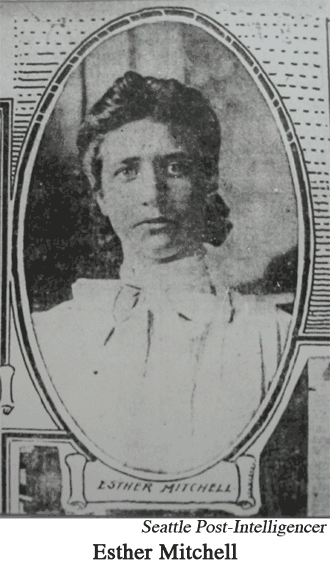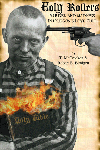"The Cult of Confession." That's what many of my Catholic friends used to joke could be an alternate name for the Catholic church. They said this because the school they went to, a school that they said was run by "The Sisters of Perpetual Guilt," required that they go to confession every day. "My biggest sin," Finnegan, a friend of mine, confessed to me, "was lying in the confessional."
"I didn't commit a sin every day," he said, "so some days I'd make up a sin to confess to." At first the invented sins were small ones--being disrespectful to his sainted mother, taking the Lord's name in vain while playing Dungeons and Dragons when he was supposed to be studying the bible, coveting his neighbor's As Seen on TV Abs Enhancer, and the like. As time went on, though, he began to enjoy making up more and more outrageous sins to confess to. One week he went from claiming on Monday that he'd shop lifted candy bars from the drug store, to claiming on Wednesday that he's shoplifted lipstick and mascara from the drug store, to claiming on Friday that he'd applied the make up and cruised the streets at night in drag.
"I should have stopped there," Finnegan said, "but I was having too much fun imaging the Father's face on the other side of the screen as I confessed to these lies." Things came to a halt the week he confessed on Monday to stealing condoms from the drug store and then confessing on Friday that he'd used the condoms while performing "unnatural acts" with his neighbor's barn yard animals, animals which on Wednesday he'd confessed to having coveted. "I debated long and hard about confessing to all this" Finnegan said, " because I thought it might give the old boy a stroke." It was a triple sin, after all. Performing unnatural acts with coveted barn yard animals AND practicing birth control.
When he made the big confession, though, the Father calmly asked, "And were any of these barn yard animals male?" All Finnegan could muster in reply was "Huhhh?"
"You see," the Father went on, "if one of them was male you could add having homosexual relations to your list of supposed sins." Finnegan was caught and did penance for his one sin: lying. Fortunately, Finnegan never believed any of his lies, and the priest did not want him confessing to sins he had not committed, so no real or lasting harm was done.
Such is not always the case for those who confess to sins, real or imagined. In many totalitarian environments "confession is carried beyond its ordinary religious, legal, and therapeutic expressions to the point of becoming a cult in itself," Dr. Lifton writes. "There is the demand that one confess to crimes one has not committed, to sinfulness that is artificially induced, in the name of a cure that is arbitrarily imposed. Such demands are made possible not only by the ubiquitous human tendencies toward guilt and shame but also by the need to give expression to these tendencies. In totalist hands, confession becomes a means of exploiting, rather than offering solace for, these vulnerabilities."
Long before the Holy Rollers began having orgies, begging for forgiveness for their sins was what Franz Edmund Creffield's services were all about. For hours on end, men, women and children would plead and wail for forgiveness. Meanwhile, those that knew them wondered what awful sins they could have committed to be making such fervent pleas for forgiveness.
"Respectable, modest and refined women and girls," was the way Will H. Morris, an attorney who got involved in the Creffield case, described Creffield's female followers. "From old neighbors, who had known them from childhood, I learned that prior to their coming in contact with Creffield and his pernicious teachings and blighting influence, all of these women and girls were from families of good reputation, respected by all who knew them, and that not a breath of reproach or a taint of suspicion had ever been directed toward their reputation for virtue and womanly conduct."
Yet these women and girls, and a few men,
seemed to believe with all their hearts that they were
guilty of committing awful, terrible and great sins and thus
spent their days and nights rolling about the floor and
begging Creffield and God for forgiveness.
***
An excerpt from Chapter
Five of Holy Rollers
in which Creffield and his
followers act like a Cult of
Confession
 As
on Smith Island, Joshua said that it was necessary for them
to frequently roll about the floor until their sins had been
atoned for--and he alone would know when that was. And so
God's Anointed [as the flock now called themselves]
obeyed, rolling and praying so loudly that neighbors said
the noise could be heard a quarter of a mile away from the
Hurts' house.
As
on Smith Island, Joshua said that it was necessary for them
to frequently roll about the floor until their sins had been
atoned for--and he alone would know when that was. And so
God's Anointed [as the flock now called themselves]
obeyed, rolling and praying so loudly that neighbors said
the noise could be heard a quarter of a mile away from the
Hurts' house.
"When they got together for the religious services, all would lie on the floor," O. V. Hurt said. Creffield would walk among them and sometimes he would roll about, too. While lying this way they were supposed to receive messages from God. Creffield would keep telling them to pray and shout with all their might or God would smite them. . . .
"He would keep telling them that God would smite them unless they did as he said. He claimed to be the Savior. I have known Creffield to keep them rolling about on the floor in this manner for from twelve to twenty four hours at one time."
Information about Brainwashing & Thought Reform
Lifton's eight 'psychological themes' that can be found in totalist groups like the Holy Rollers:
***
Stanley Milgram's Obedience to Authority
***
Think You Can't be Lured into a Cult? Think Again.
The Oregon State Insane Asylum in 1907
***
Relevant Newspaper Articles:
October to December 1903: Holy Rollers Burn Furniture & Pets
April to June 1904: Holy Rollers are Committed to the Asylum
Chapters from
Holy Rollers: Murder & Madness in Oregon's Love Cult
Part 1: The Seduction
Chapter 1: Trust Me, Brothers And Sisters
(Life Before Creffield [B.C.])
Chapter 2: God, Save Us From Compromising Preachers
(Creffield's Preachings)
Chapter 3: The Flock
(Profiles of the Holy Rollers Were)
Chapter 4: The Holy Rollers
(Things Start to Get Wild on on Kiger Island)
Chapter 5: Housecleaning
(There's a Sacrificial Bonfire)
Chapter 6: Community Concerns
(Officers Visit)
Chapter 7: Esther, The Chosen One
(Creffield Plans to Marry 16-Year- Old)
Chapter 8: Tar and Feathers
(The Men of Corvallis Act)
Chapter 9: Sane People Don’t Go Bareheaded
(Holy Rollers are Committed to the Asylum)
Chapter 10: More Beast Than Man
( Creffield is Arrested)
Chapter 11: God Will Plead Creffield's Case
(Creffield in Court)
Chapter 12: Scandal
(Shocking Testimony at the Trial)
Chapter 13: Calm Before the Storm
(The Holy Rollers Resume their Lives)
Chapter 14: Giving Up The Ghost
(Men are Gunning for Creffield)
Part Two: The People V. Creffield
Chapter 16: The Widow Creffield
Chapter 19: An Inherited Streak of Insanity
Part Three: The Madness
Chapter 23: Seeking Reconciliation
Chapter 24: Another Holy Roller Page One Murder
Chapter 25: What Can Papa Do For You?
Chapter 26: Human Life is Too Cheap In This Community
Chapter 30: The Final Chapter
(What Happened to Everyone Afterwards)
The Epilogue
(Heaven's Gate)
